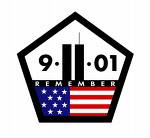 Seven years have passed since September 11, 2001, yet the tragic events and their aftermath are burned indelibly into the minds of everyone who was working in commercial aviation on that day. Crew members, in particular, were acutely pained by 9/11. They realized immediately that the crew members on the hijacked aircraft were among the very first to be murdered by the terrorists. They understood that -- but for fortune -- they could have been working on one of the hijacked flights that morning.
Seven years have passed since September 11, 2001, yet the tragic events and their aftermath are burned indelibly into the minds of everyone who was working in commercial aviation on that day. Crew members, in particular, were acutely pained by 9/11. They realized immediately that the crew members on the hijacked aircraft were among the very first to be murdered by the terrorists. They understood that -- but for fortune -- they could have been working on one of the hijacked flights that morning.When the U.S. airspace re-opened several days after the attack, most crews returned to work. No one knew what was going to happen, and no one could guarantee their safety, yet flight attendants and pilots courageously put on their uniforms, boarded the planes, and carried on.
In the weeks following 9/11, much media attention and well-deserved praise was focused on the firefighters and other first responders who rescued victims and put their lives on the line in New York and Washington. At the same time, though, little attention or recognition was given to the airline crews and their role on 9/11 and during its aftermath.
Then, as the airline industry suffered a huge economic downturn after 9/11, many crew members were furloughed, or lost their jobs outright. Most of those who remained employed did so by agreeing to huge cuts in pay and benefits, including the loss of their pensions.
To this day, the pervasive emotional and economic effects of 9/11 and its aftermath on airline crews remain largely under-reported by the media and ignored by much of the flying public. In fact, nothing has been the same in the aviation industry since 9/11.
As a researcher who has spent years studying the health and well-being of people who fly for a living, I can say that no event in recent history was more acutely stressful to more people in aviation than 9/11. Awhile back, I set out to document some of the experiences of airline flight attendants working in the United States at the time of the 9/11 terrorist attacks. I collected their stories by means of focus groups, structured interviews with individuals, and responses to an on-line survey.
In 2005 I wrote a paper based on these personal narratives. The paper was presented at a meeting of the British Association for American Studies, held at Cambridge University, England. Here is the link to the text of my oral presentation: "Nothing will ever be the same again." - How flight attendants in the US coped with '9/11.'
I want to assure the crew members in the United States and around the world who experienced 9/11 so personally, and who still grieve, that some people do indeed notice you, do admire your courage, and do appreciate all you have done and continue to do for all of us.
